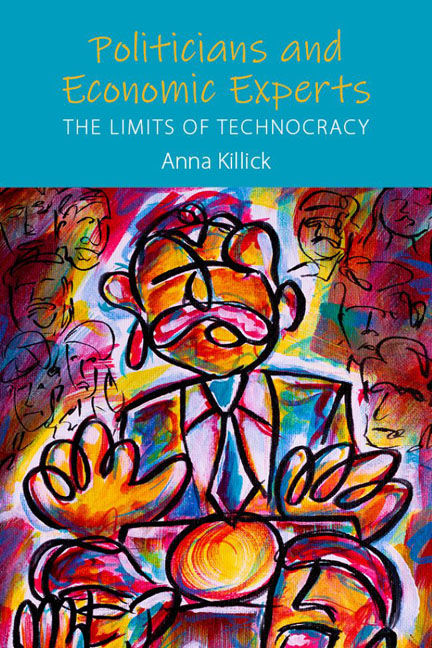Part II - Ideological and National Variations
Published online by Cambridge University Press: 20 January 2024
Summary
Part I shows some overall patterns in how politicians think about economists and voters across the five countries. In Part II I explore some of the ideological and national differences. I have had to take an asymmetric approach. If I had focused on a chapter for each country, it would have exaggerated the extent of national differences. I found that the centre and far-left interviewees across all five countries shared enough to warrant separating them out in a chapter on “the left”.
I selected the five countries on the basis that they reflected varieties of capitalism and varieties of style of democracy. Attitudes to economists seemed to vary according to the degree to which a country had a consensual political system, usually most obviously characterized by features such as frequent coalition government. It is beyond the descriptive nature of this book to ascertain whether the style of democracy is what causes the attitudes to economists. Other factors, such as economic conditions or intellectual cultures, may be equally important. I just note that there was a correlation. Therefore, I have grouped Denmark and Germany together, and, similarly, the two pluralist cases of the United Kingdom and the United States. However, the French interviewees were distinct in their attitudes to economists in a number of key respects, so they deserve a chapter on their own.
The final chapter in this section focuses on one aspect of politicians’ thinking: the economics of the environment. This chapter attempts to justify the stance taken throughout the book, that at least for the moment it is impossible to understand politicians’ attitudes to the economics of the environment without first understanding their attitudes to economic ideas more generally – the main subject of the book. In the same way, we cannot understand their attitude to economists who write on the environment without knowing that broader context first.
- Type
- Chapter
- Information
- Politicians and Economic ExpertsThe Limits of Technocracy, pp. 49 - 50Publisher: Agenda PublishingPrint publication year: 2022



